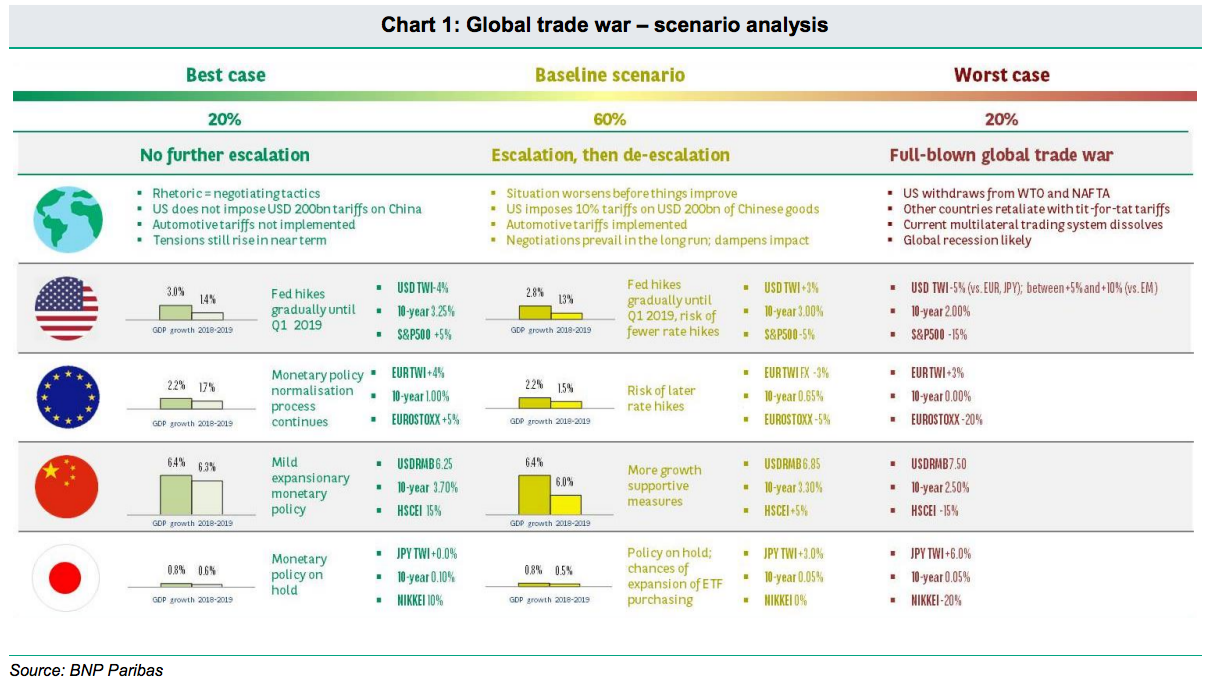Market Action
Global equities advanced on the week, underpinned by signs that trade tensions between the United States and the European Union are easing, generally solid earnings reports and upbeat economic growth data from the US. The yield on the US 10-year Treasury note rose 10 basis points to 2.96% amid firm US GDP growth and a backup in Japanese yields. Crude oil prices rose almost 3% this week before edging lower Friday.
US president Donald Trump and European Commission president Jean-Claude Juncker met at the White House on Wednesday and agreed on a framework intended to keep the two sides from escalating the ongoing trade battle while negotiating the elimination of tariffs and subsidies on non-auto industrial goods. Additionally, they said they will work toward resolving the steel and aluminum tariffs and the EU’s retaliatory tariffs.
According to FactSet, among the 53% of companies in the S&P 500 which so far have reported actual results for Q2 2018, 83% of companies have reported a positive EPS surprise (and 77% have reported a positive sales surprise). If 83% is the final number, it will mark the highest percentage since FactSet began tracking this metric in Q3 2008.
Venezuela announced it will chop five zeros off of the redenominated bolivar that will be introduced on 20 August, amid a bout of hyperinflation that is expected by the International Monetary Fund to reach 1,000,000% by the end of this year. The sovereign bolivar, as the new currency will be called, will be linked to the petro, the country’s cryptocurrency, which is ostensibly backed by the state’s natural resource reserves.
The Turkish lira fell sharply after the central bank decided to leave its benchmark interest rate on hold, at 17.75%, unnerving those hoping for a rate increase to combat the inflation which reached 15.4% in June. It also fuelled worries that Turkey’s president Recep Tayyip Erdogan, who has called interest rates “the mother of all evil”, is again encroaching on central-bank policymaking.
The US Department of Agriculture announced it will pay up to $12B to US farmers, with authority that dates back to the Great Depression and does not require congressional approval, to help farmers weather growing trade war fallout. (Chinese tariffs on American soybeans, for example, have curtailed America’s exports of the commodity, leading to a build-up of domestic stockpiles and falling prices.) Such aid programs could distort markets and ultimately have negative consequences for the agriculture industry.
Please click here for this week’s update on market returns.
This Week from BlackSummit
Crossroads: At the Intersection of Geopolitics and Geoeconomics
Andy Quirk
Recommended Reads
Julia Hahn
Video of the Week
Drone footage shows devastating aftermath of Greece wildfires
Image of the Week

